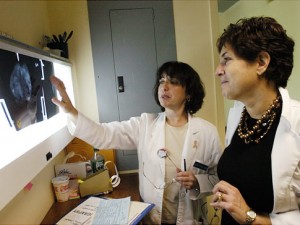
A new report found that Hispanic women wait longer to receive life-saving breast cancer treatment than white women by 30, 60 and up to 90 days.
Researchers analyzed data from the National Cancer Database for the study published in the Journal of Health Care for the Poor and Underserved. The delays were also the same for African American women. A link between race and breast cancer treatment was discovered in more than 250,000 women with stage I to stage III cancer during 2003 and 2006.
“I was surprised at how strong the associations between race and ethnicity and the risk of 60- and 90-day delays were,” Stacey Fedewa, an epidemiologist at the American Cancer Society in Atlanta, said.
The risk of waiting for treatment by 60 days was 57 percent for Hispanics and for African American women it was 76 percent higher, compared to whites.
Treatment should begin as soon as possible, even though it may not necessarily be considered an emergency, says Peter Ravdin, M.D., director of the Breast Health Clinic at the University of Texas Health Science Center San Antonio.
“However, most women want to get a positive course of action started as soon as it is safe, and most health care teams try to see that such therapy starts as soon as all the information needed for treatment planning is available,” he said.
Generally, 60 percent of patients began their treatment within 34 days. But if the barriers that cause delays in cancer therapy are to be removed and disparities in treatment by race reduced, researchers concluded that much more work should be done.

Recent Comments